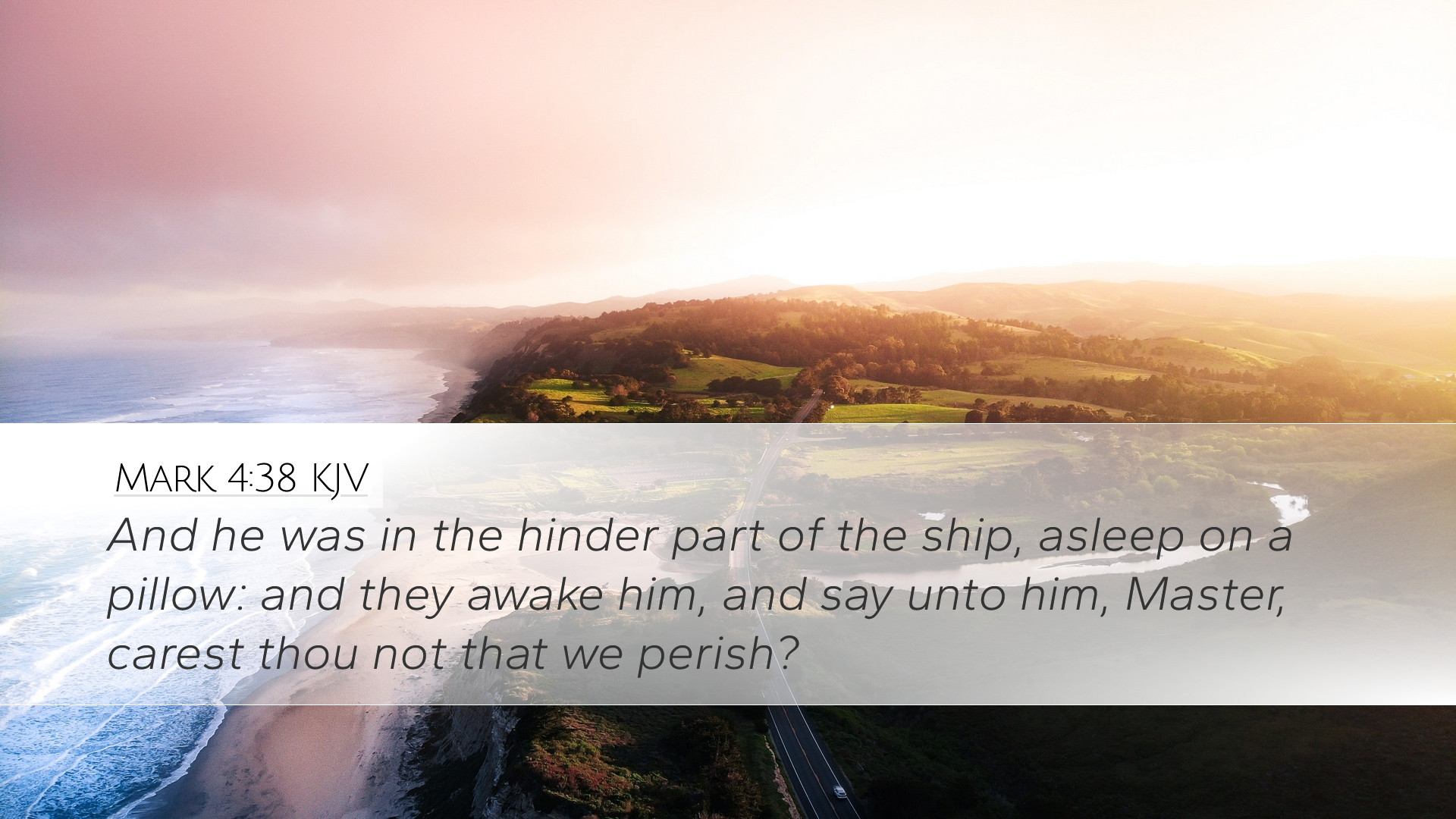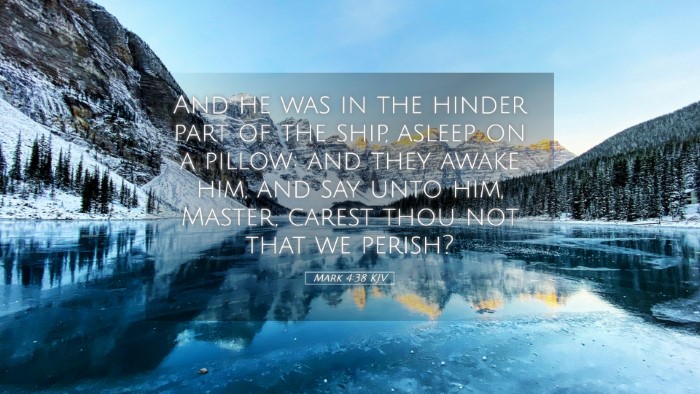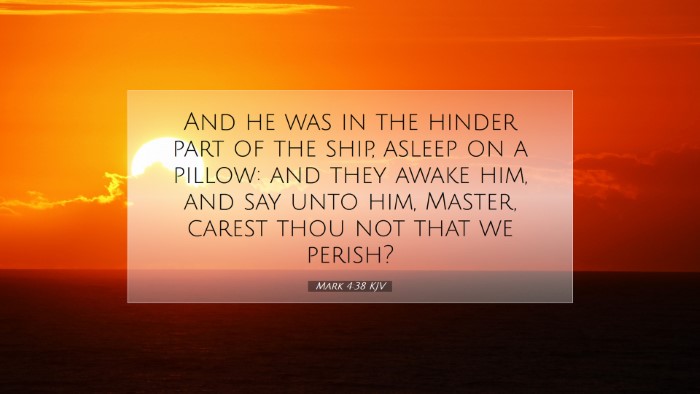Bible Commentary on Mark 4:38
Verse: Mark 4:38 - "But he was in the stern, asleep on the cushion. And they woke him and said to him, 'Teacher, do you not care that we are perishing?'"
Introduction
The narrative of Mark 4:38 presents a vivid scene of Jesus in the midst of a storm, offering profound insights into the nature of faith, fear, and the divinity of Christ. This verse captures a moment of distress among the disciples and the serene response of Jesus, initiating a rich field for theological reflection and pastoral application.
Contextual Analysis
Mark 4:38 is set within the larger context of Jesus' ministry, where He has been teaching extensively by the Sea of Galilee. Following a day of parables, he commands His disciples to cross to the other side of the lake. This transition introduces a scenario where a sudden storm threatens their journey. The juxtaposition of Jesus' rest and the disciples' panic underscores a critical theme of human frailty in the face of divine authority.
Commentary Insights
-
Matthew Henry’s Perspective
Matthew Henry highlights the contrast between the disciples' fear and Jesus' tranquility. He notes that the disciples, seasoned fishermen, succumbed to fear in a moment of crisis, revealing the depth of their panic. Henry emphasizes Jesus' sleep as an indication of His complete trust in God the Father, and serves as a poignant reminder of the peace that can exist amidst turmoil.
-
Albert Barnes' Commentary
Albert Barnes focuses on the disciples' cry for help, addressing their question, "Do you not care?" This exclamation exemplifies a profound misunderstanding of Jesus’ character and mission. Barnes articulates that in times of distress, believers often question God's care for them. He invites readers to consider their own responses to life's storms and reassures them of Christ’s awareness of their plight.
-
Adam Clarke’s Insights
Adam Clarke draws attention to the setting of Jesus in the stern of the ship, asleep on a cushion. He notes the physical exhaustion of Jesus from His relentless ministry, indicating His humanity. Clarke also reflects on the theological implication of Jesus sleeping through the storm. This was not carelessness but a demonstration of His sovereign control over creation. Clarke argues that the calmness of Christ amid chaos is a model for believers' responses in adversities.
Theological Reflection
Mark 4:38 invites significant theological reflection on the duality of Jesus as both human and divine. The scene encapsulates the mystery of the Incarnation—where Jesus, fully God, possesses the power to command the winds, yet fully human, experiences fatigue and rest. This dual nature offers profound implications for understanding Christ’s empathy towards human suffering and His authoritative power over creation.
Furthermore, the disciples’ desperate call to Jesus underscores a universal human tendency to seek divine intervention in crises. The response of Jesus, both in His question of faith and His subsequent calming of the storm, serves as a pivotal moment that transitions the disciples' understanding of who they follow. This progression from fear to faith is a vital theme throughout the Gospel of Mark.
Application for Pastoral Ministry
In pastoral contexts, Mark 4:38 speaks powerfully to congregations facing turmoil—be it personal, communal, or global. Pastors are encouraged to draw parallels between the disciples' experience and the challenges faced by their congregants today. The assurance of Jesus' presence in storms of life can be a profound comfort, urging believers to trust in His sovereignty amidst uncertainty.
Moreover, this passage serves as a call for faith amidst fear. Pastors can use this narrative to encourage believers to confront their fears, reminding them of the importance of prayer and reliance on Christ during challenging times. The dialogue with the disciples challenges congregations to express their doubts and fears to Christ, promoting a healthy dialogue of faith that seeks deeper understanding and trust in God.
Conclusion
Mark 4:38 is rich with meaning for believers striving to understand Jesus amidst life's tempestuous moments. The interplay of fear and faith, the demonstration of Christ’s sovereignty, and the intimate call for trust amidst trials provides a multi-faceted exploration for theologians, students, and scholars alike. As we reflect on this passage, it implores us to embrace the peace of Christ, recognizing His constant presence in life’s storms.


